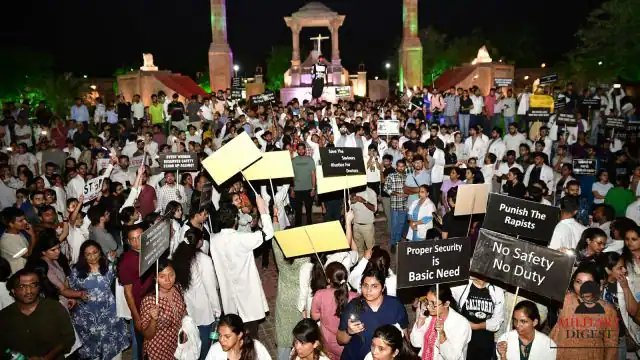Kolkata Doctor Rape Case, IMA Nationwide Strike Live, August 18: The Supreme Court on Sunday took suo motu cognisance of the rape and murder of a woman junior doctor at R G Kar Medical College in Kolkata, West Bengal. A bench led by Chief Justice of India D Y Chadrachud will hear the case on Tuesday (August 20). This comes a day after the Indian Medical Association held a 24-hour nationwide strike in protest against the incident. The medical body wrote to Prime Minister Narendra Modi. It listed five “solutions and demands.” These demands include issues related to hospital security, shift timings, the ongoing probe of the Kolkata case, and compensation to the family. The medical body expects the government to address these concerns.
Meanwhile, the Central Bureau of Investigation (CBI) interrogated Dr. Sandip Ghosh, the former principal of RG Kar Medical College and Hospital, for the third consecutive day. The central agency also requested details of the calls he made before and after the incident. This information was reported by news agency PTI. The report further said that the CBI was mulling contacting the mobile service provider to access Ghosh’s call records. The CBI grilled Ghosh for nearly 13 hours on Saturday, from 10 am until past midnight.
Status of the Probe
A CBI team is probing the case after the Calcutta High Court transferred it from the Kolkata Police on August 13. Investigators have discovered that Sanjay Roy’s wife, the man accused of raping and killing the doctor, lodged a complaint at Khalighat police station.
In connection with the August 14 vandalism case, authorities have identified and arrested two TMC workers, several men in their teens or 20s, and a couple of women. Additionally, authorities have summoned several Left leaders for questioning. This includes DYFI’s West Bengal secretary Minakshi Mukherjee and six other state-level youth and student leaders of the CPIM.
This news is sourced from Indian Express and is intended for informational purposes only.



![Afghan men search for victims after a Pakistani air strike hit a residential area in the Girdi Kas village, Nangarhar province on February 22, 2026. [Aimal Zahir/AFP/Getty Images]](https://southasiatimes.org/wp-content/uploads/2026/02/gettyimages-2262391441.webp)


